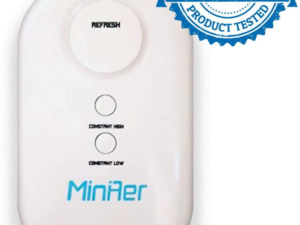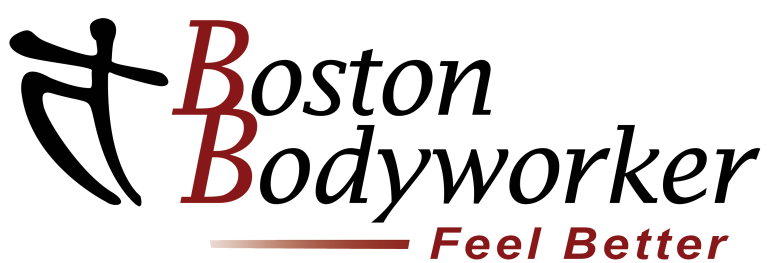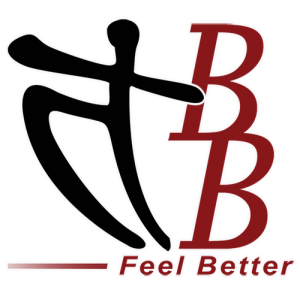The Power of Suggestion
We have all heard the term “Placebo”. A placebo is a treatment that decreases symptoms only because the client imagines a benefit, not because the treatment itself has any effect. For example, a sugar pill can be a placebo that will improve a headache only if the person taking the pill has an expectation that it will provide benefit. The placebo effect is the physiological process by which expectations about a treatment cause changes in the brain that initiate an improvement in symptoms.
Well, the contrast to this is a “nocebo”. A nocebo causes negative changes in symptoms (e.g. more pain and reduced function) when there is an expectation that an otherwise harmless stimulus will cause harm. Consider the person who thinks that bending and touching their toes will cause them pain, because the last time they did this, it did. The chances of them experiencing discomfort are pretty high. Over time, they avoid this movement and essentially create the harm that they anticipated because they have not moved properly due to this nocebo effect in thinking. Think self-fulfilling prophecy.
Many think of placebo as a mind-body connection that is a mysterious process without explanation. But in fact, we have connections between abstract thoughts and the body all the time. However, we never logically conclude this in real time. If I think there is danger in a dark alley I’m approaching, than my heart begins to beat faster. If I am nervous before a presentation, my hands begin to sweat. These are all reactions to our own thoughts. It’s not magic. There is a connection.
Well, what if the effect of your care is a “nocebo”? The opposite of a placebo. A nocebo is a detrimental effect on health produced by psychological or psychosomatic factors such as negative expectations of treatment or prognosis. This type of effect actually occurs much more often than the placebo effect. A nocebo effect is often innocently injected into our daily lives or even into our rehabilitation models. As an example, if you go for an MRI and the doctor tells you that they see a bulging disc, you may start to feel more pain, even if the pain you feel has nothing to do with the MRI findings. However, what if they continued to tell you that there is poor correlation between back pain and MRI findings? This can change the way you take in that information. If your therapist tells you that your hamstrings are tight, you may start to shorten your stride or be concerned about the first minor twinge you feel in the hamstring the next time you think you are about to pull something.
Ultimately, what we are learning more and more is that how we think about an injury and how we are spoken to by professionals who we look to for comfort, can have as big of an impact on recovery as the treatment approaches themselves. How many of us have walked into a doctor’s office and seen a model of a spine with the disc sitting next to it? This is what people think happens to “slipped discs”. It’s not. Not even close. But that imagery has a huge impact on how someone who has a slipped disc, can feel. As a matter of fact, many you reading this right now may have a slipped disc, but not even be aware of it. Again, follow the science. Correlation does not equal causation. We must all, professionals and patients, reshape the words we use to express what we are experiencing. This goes a long way in moving past problems related to pain and trauma in our lives.
Ready to #feelbetter?
You're just a click away from a wicked good massage!
-

60 Minute Massage Gift Card
$170.00 Add to cart -

90 Minute Massage Gift Card
$255.00 Add to cart -

Mini Aer Small Room Air Purifier
$149.00 Add to cart -
Sale!

Thera-Pearl Sports Pack/Hot Cold
Original price was: $14.99.$12.99Current price is: $12.99. Add to cart -

3 Somadome Sessions Gift Card
$135.00 Add to cart -

TheraBand CLX Connective Loop
$14.99 Select options -

6 Somadome Sessions Gift Card
$270.00 Add to cart -
Sale!

Biofreeze
Original price was: $14.99.$12.99Current price is: $12.99. Add to cart
Sprain vs. Strain; What’s the Difference?
Sprain vs. Strain; What’s the Difference? So you think you might have sprained or strained something. How do you know which it is, and does it matter? You’ve heard the two terms your entire life, but did you know that there is not only a major difference between them, there are also varying grades and…
Read MoreComplimentary Consultations for Members
As we unveil the newest membership perk at The Boston Bodyworker, our Recovery Lounge, we wanted to reach out to our members to introduce them to one of its many features; Me! As the owner of The Boston Bodyworker, my goal is to help people ‘feel better’. However, that means different things to all of…
Read MoreLife Hack: Vagus Nerve Stimulation
As I discussed in our March Newsletter, Vagus nerve stimulation has the potential to help those suffering from various health conditions, including but certainly not limited to anxiety disorders, heart disease, some forms of cancer, poor circulation, leaky gut syndrome, Alzheimer’s, memory and mood disorders, migraines and headaches, fibromyalgia, obesity, tinnitus, addiction, autism and autoimmune…
Read MoreSleep In This Weekend
Raise your hand if your sleepy right now? Great! Now, put your hand down because your boss is wondering why you’re raising a hand at work. Even if you can’t physically acknowledge that you are sleepy, we have some exciting news that we know you’ll want to stay awake for. It turns out, that getting…
Read More30 Day Challenges
Over the past few years, I have been seeing and uptick in these 30 day challenges. Being in the industry as long as I have, I immediately have issue with any workout that is done every day. The science is as clear as crystal. The days off are where the magic of tissue remodeling and…
Read MoreLife Hack: Close Your Windows
If you suffer from season allergies, then this season is said to be the worst for many of you in a long time. I won’t get into the debate about climate change and how it is said to have an impact on the latest seasonal allergy warnings. I’ll try to keep this hack as simple…
Read MoreThe Power of Suggestion
We have all heard the term “Placebo”. A placebo is a treatment that decreases symptoms only because the client imagines a benefit, not because the treatment itself has any effect. For example, a sugar pill can be a placebo that will improve a headache only if the person taking the pill has an expectation that…
Read MoreIs All Knee Pain Created Equal?
As a massage therapist, it is outside our scope of practice to diagnose any condition we see. However, that does not prevent us from evaluating, assessing and working off this information. Often, we have patients who come in with a “google-osis”, meaning they just googled something like “knee pain” looked for whatever symptoms seemed to…
Read MoreMembers Recovery Lounge
At The Boston Bodyworker, we are constantly motivated to honor our mission to help you “Feel Better”. Coming this April, we are delighted to unveil our newest membership advantage; our Recovery Lounge. Members will enjoy a dedicated space….exclusive access to a private/semi-private room that has been transformed into a place for you to arrive early…
Read MoreLife Hack: Yellow Mustard to Reduce Cramps
Runners are always seeking an edge, especially on race days. Well, the biggest running race of the season is creeping up quickly and the only thing that will creep up faster are cramps along the marathon route. Have no fear, we have a simple solution for you; Yellow Mustard! That’s right, mustard Seeds of its…
Read More
